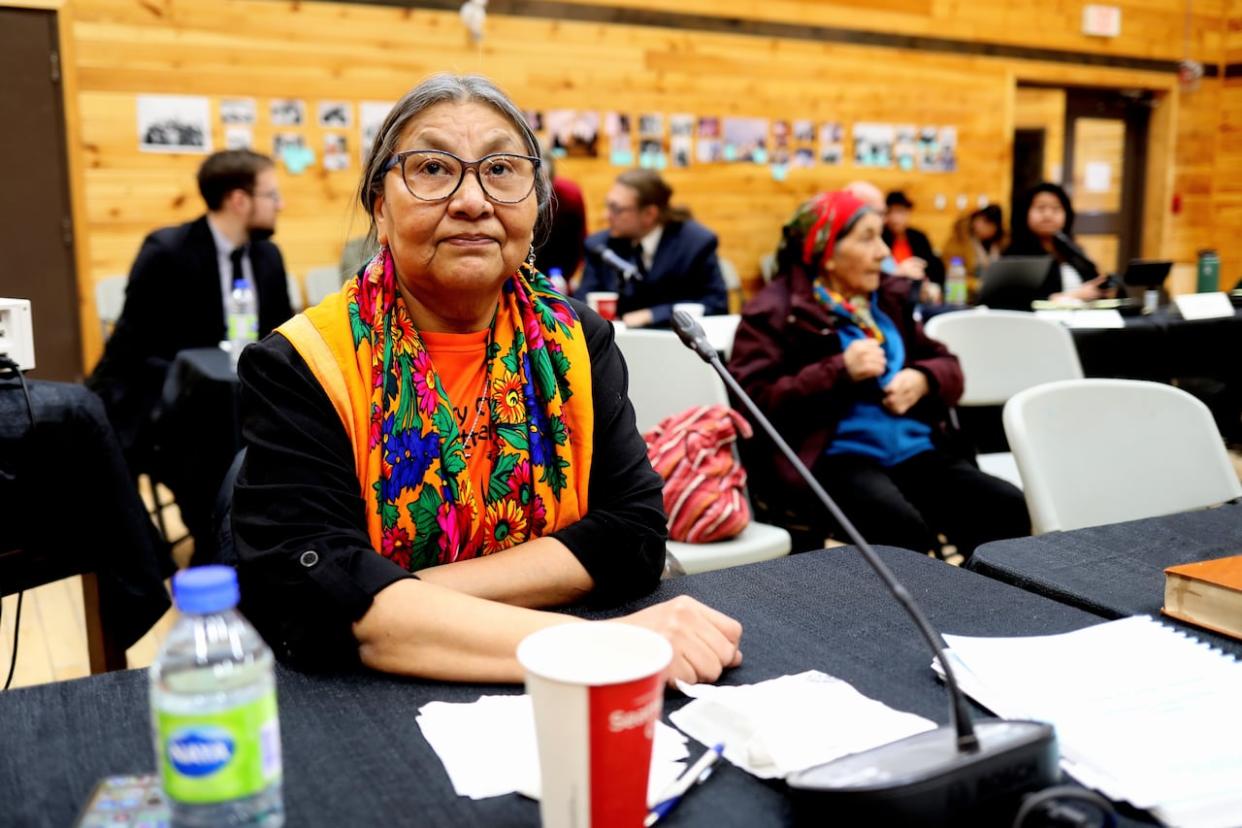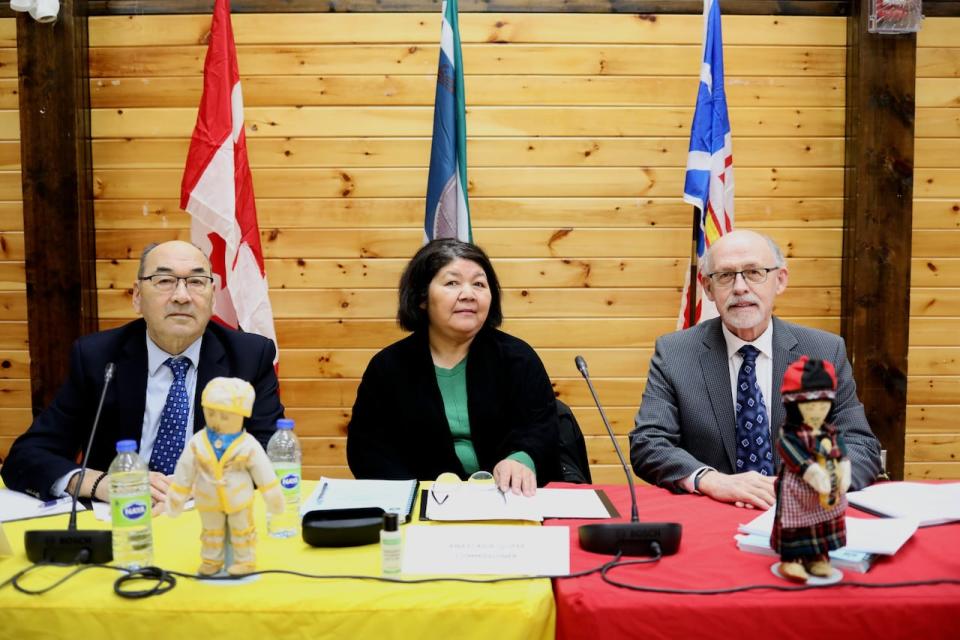Elder Mary Pia Benuen, Labrador's 1st Innu nurse, tells inquiry her family fought the system

Labrador's first Innu nurse was the first person to provide formal testify at the Inquiry Respecting the Treatment, Experiences and Outcomes of Innu in the Child Protection System on Monday in Sheshatshiu.
Mary Pia Benuen, who grew up in Sheshatshiu, has been the community's public health nurse for nearly 30 years, giving her a distinct perspective on the community's health and well-being.
Growing up in a home with two alcoholic parents, Benuen told the inquiry Monday, officials tried many times to remove her and her siblings from the family home. Her father always took great strides to keep them in the community, connected to their culture and language, she said.
"He went to the social services office and they locked the door on him with my two little brothers in there," said Benuen, who's now the primary health director at Sheshatshiu's Mani Ashini Health Centre. "They wouldn't open the door for him, but he kicked the door down and took his boys out of the office and took them back home."
Some of her childhood friends weren't so lucky, she said, and died young after being in the system for many years.
"They were sent out of the community, to Newfoundland, I believe," Benuen said.
"When they became of age to come home, they did come home, but they were lost in the community. They couldn't function in the community, and they turned to alcohol.… They didn't feel like they belong here."
The inquiry's formal hearings began in Sheshatshiu on Monday, after months of informal community sessions. The inquiry was launched in April 2022 after years of delays and a push from the Innu Nation to keep children in care in their home communities, with treatment that focuses on their culture and roots.
Never, ever give in to the white people, because if you let them do whatever they want to you, then you'll be there to be stepped on all through your life. - Mary Pia Benuen, relaying her father's advice
Benuen said her happiest memories come from spending time with her parents and grandparents in the country, where her father taught her to clean and prepare animals that had been hunted and her mother showed her how to sew mittens and moccasins.
She said her home life wasn't perfect but her father ensured that she and her siblings would grow up proud to be Innu, with words that stay with her to this day.
"[He told me] never, ever give in to the white people, because if you let them do whatever they want to you, then you'll be there to be stepped on all through your life," she said.

From left, James Igloliorte, Anastasia Qupee and Mike Devine are the inquiry's commissioners. (Heidi Atter/CBC)
Benuen a good student, had to travel to St. John's to finish high school before moving on to nursing school in Ontario. She then spent seven years working at the Melville Hospital in Happy Valley-Goose Bay, where she was able to provide the kind of care for Innu people that they'd been looking for.
Patients appreciated her ability to speak their language and understand their cultural needs, she said, and she provided simple language and cultural sensitivity workshops at the hospital for doctors and nurses.
She became Sheshatshiu's health director in 1997. Watching her father fight the system for most of her life had a direct impact on her own life's course, she said.
Her testimony was scheduled to continue at the hearing in Sheshatshiu on Tuesday. The inquiry's final report is due Sept. 30.
Download our free CBC News app to sign up for push alerts for CBC Newfoundland and Labrador. Click here to visit our landing page.


